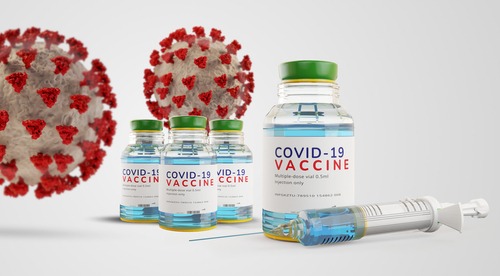
Preliminary results from a Phase 2 mix and match trial of the Johnson & Johnson COVID-19 booster vaccine are in, and they determined that administered six months after a vaccination routine of BioNTech and Pfizer’s BNT162b2, both antibody and T-cell responses rise.
The independent study, which included a subset of participants from the Janssen-sponsored COV2008, focused on giving previously vaccinated participants booster shots of J&J’s Ad26.COV2.S. The results highlighted the potential benefits of heterologous boosting, or mix and match, a practice regulators and pharmaceutical companies have increasingly turned their eyes toward.
“There is early evidence to suggest that a mix-and-match boosting approach may provide individuals with different immune responses against COVID-19 than a homologous boosting approach,” said Dr. Dan Barouch, director of the Center for Virology and Vaccine Research at Beth Israel Deaconess Medical Center (BIDMC), and leader of the Janssen-sponsored trial. “In this preliminary study, when a booster dose of Ad26.COV2.S was given to individuals six months after a primary regimen with the BNT162b2 vaccine, there was a comparable increase of antibody responses at week four following the boost and a greater increase of CD8+ T-cell responses with Ad26.COV2.S compared with BNT162b2.”
T-cells can target and destroy cells infected by the virus that causes COVID-19: SARS-CoV-2. Antibodies can bind to the virus in a way that blocks infection and confines the virus to the upper respiratory tract or bind to the virus spike protein and disable it.
For this test, in particular, booster shot efforts also brought similarly increased neutralizing and binding antibody levels to bear against the Delta and Beta variants. Unlike these heterologous boosts, those given homologous boosts — the same vaccine the whole way through — experienced antibody declines from week two to week four after boosting.
Preliminary results from the UK COV-BOOST clinical study, also published last week, backed the findings of this study, having found that a booster given to participants previously vaccinated either with the Pfizer or AstraZeneca vaccines saw increased antibody and T-cell responses.




